| Weight | 1 lbs |
|---|---|
| Dimensions | 9 × 5 × 2 in |
| accession | P80098 |
| express system | E.coli |
| product tag | biotin at C-terminal |
| purity | > 97% by SDS PAGE |
| molecular weight | Predicted Molecular Mass: 11.374 kDa Extinction Coefficient: 14,180 M-1 cm-1 Actual Molecular Mass: 11.374 kDa by ESI Mass Spec |
| available size | 10 µg, 100 µg, 1mg, 2 µg, 50 µg |
| endotoxin | <0.01 EU per 1μg of the protein by the LAL method |
Biotinylated Human CCL7 (MCP-3) 9020
Price range: $134.00 through $3,368.00
Summary
- Expression: E.coli
- Amino Acid Range: 24-99
Biotinylated Human CCL7 (MCP-3) 9020
| protein |
|---|
| Database link: human P80098 |
| Size and concentration 5, 20, 50, 100µg and lyophilized |
| Form Lyophilized |
| Storage Instructions Avoid repeated freeze-thaw cycles: • 12 months from date of receipt, -20 to -70 °C as supplied. • 1 month, 2 to 8 °C under sterile conditions after reconstitution. • 3 months, -20 to -70 °C under sterile conditions after reconstitution |
| Storage buffer ​Reconstitution: Spin sample prior to reconstitution. Recommended concentration of 100µg/mL in sterile water. Shipping: Room Temp |
| Purity > 97% by SDS PAGE and HPLC |
| target relevance |
|---|
| Monocyte protein 3 (MCP-3/CCL7) is secreted by monocytes and certain tumor cell lines. It is a chemoattractant for monocytes and other leukocytes. MCP-3 binds and signals through several chemokine receptors including CCR1, CCR2, CCR3, and appears to be an antagonist for CCR5. |
| Protein names C-C motif chemokine 7 (Monocyte chemoattractant protein 3) (Monocyte chemotactic protein 3) (MCP-3) (NC28) (Small-inducible cytokine A7) |
| Gene names CCL7,CCL7 MCP3 SCYA6 SCYA7 |
| Protein family Intercrine beta (chemokine CC) family |
| Mass 11200Da |
| Function FUNCTION: Chemotactic factor that attracts monocytes and eosinophils, but not neutrophils. Augments monocyte anti-tumor activity. Also induces the release of gelatinase B. This protein can bind heparin. Binds to CCR1, CCR2 and CCR3. |
| Subellular location SUBCELLULAR LOCATION: Secreted. |
| Structure SUBUNIT: Monomer. Interacts with TNFAIP6 (via Link domain). {ECO:0000269|PubMed:27044744, ECO:0000269|PubMed:8898111}. |
| Post-translational modification PTM: O-glycosylated. |
| Target Relevance information above includes information from UniProt accession: P80098 |
| The UniProt Consortium |
Data
Publications
| pmid | title | authors | citation |
|---|---|---|---|
| We haven't added any publications to our database yet. | |||
Protocols
| relevant to this product |
|---|
| Migration assay |
Documents
| # | ||
|---|---|---|
| Please enter your product and batch number here to retrieve product datasheet, SDS, and QC information. | ||
Only logged in customers who have purchased this product may leave a review.
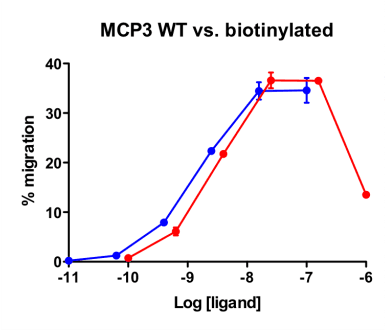
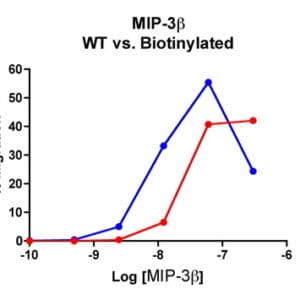
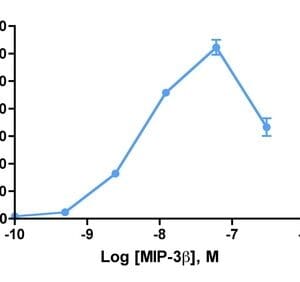
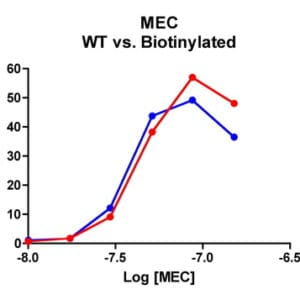

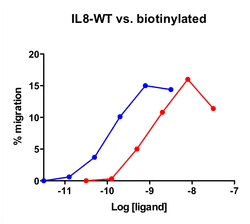
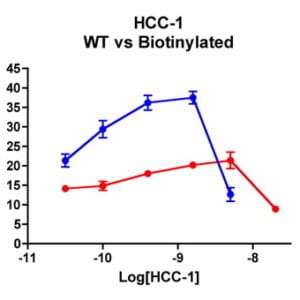
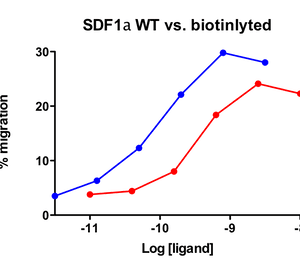
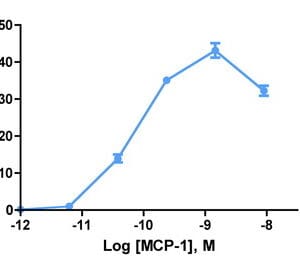
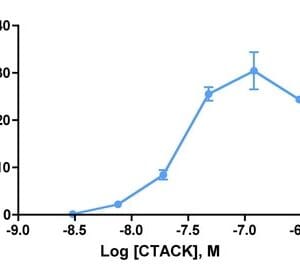
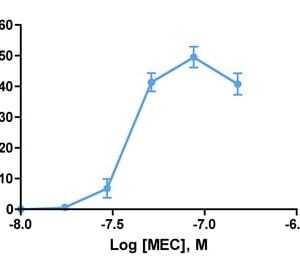
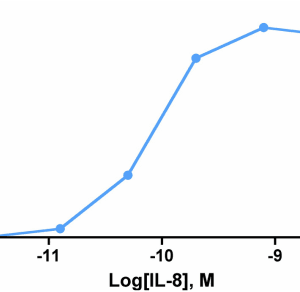
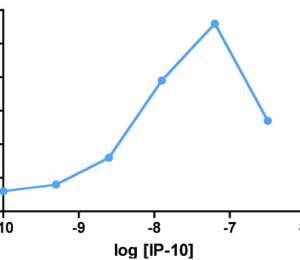
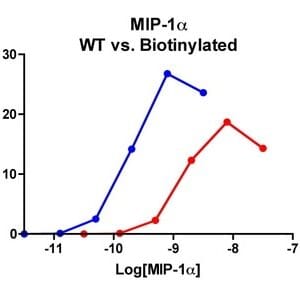
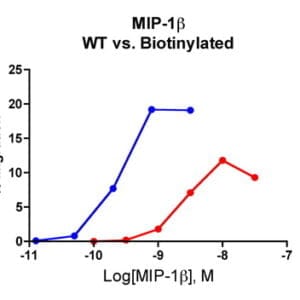

Reviews
There are no reviews yet.